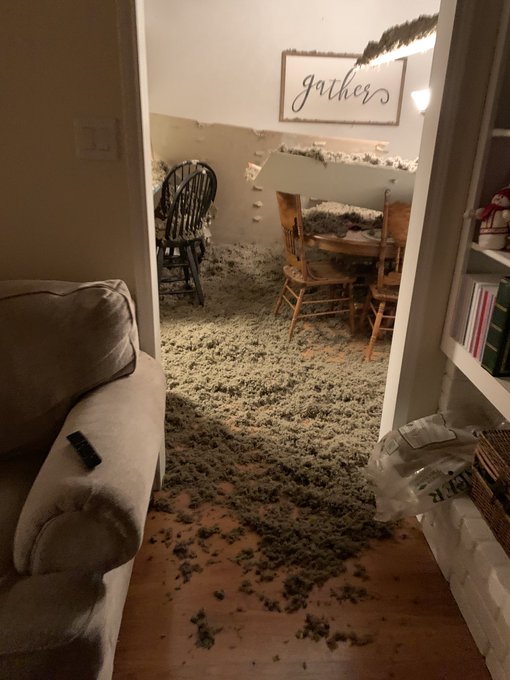Tens of thousands forced to evacuate their homes before Thanksgiving after chemical plant explosions in Texas

A fire continued to burn Thursday as a smoke cloud covered the area surrounding the TPC Group plant.
The first explosion rocked the small city of Port Neches Wednesday morning, leaving at least three employees injured. More explosions followed throughout the day, including one that launched a tower into the air "like a missile," Jefferson County Judge Jeff Branick said.
The blasts shattered windows, destroyed roofs and left residents fearing for their safety after officials urged them to "shelter in place" early Wednesday.
TPC has not yet said what caused the explosion or the extent of the damage.
Branick, who issued a mandatory evacuation for areas within a 4-mile radius of the plant, said he was sorry for "any plans that might have been interrupted."
"I know that it's extremely frustrating, particularly on the eve of Thanksgiving, for you to be away from your homes and family, and I can feel your frustration," he said at a Wednesday news conference. "But I want to emphasize that the safety of the community is always going to be our top concern."
Officials told residents not to worry about their belongings, adding that they have increased patrols in the areas of evacuation to prevent looting, CNN affiliate KPRC reported.
Besides Port Neches, Branick's evacuation orders included the cities of Groves, Nederland and the northern part of Port Arthur.
But the chemical levels in the air tracked about 4 miles away from the explosion are "well below concentrations of health concern or odorous levels," the Texas Commission on Environmental Quality said.
In the hours following the first explosion, black debris floated in the air, CNN affiliate KTRK reported.
"The black stuff floating, don't touch it," Troy Monk, TPC Group's director of health safety and security, said.
'It's not under control'
The plant makes products for chemical and petroleum companies, TPC Group said.
The fire is burning a chemical called butadiene -- a colorless gas with a gasoline-like smell that is considered a health hazard, according to the US National Library of Medicine. Butadiene is made from processing petroleum and is used to make synthetic rubber and plastics.
That fire was still burning 24 hours after the first explosion.
"Right now, it's contained and not going anywhere but it's not under control," Jefferson County Sheriff's Office Capt. Crystal Holmes told CNN Wednesday.
The health effects
Health effects from butadiene exposure can vary, the Occupational Safety and Health Administration says.
Lower exposures can cause irritation to the eyes, throat nose and lungs as well as cause frostbite. Higher exposures can damage the central nervous system or cause symptoms including distorted blurred vision, vertigo, general tiredness, lowered blood pressure, headaches or nausea.
More chronic effects are disputed, the agency says.
"Several human epidemiological studies have shown an increase in cardiovascular diseases and cancer," OSHA says. "However, due to the small numbers of cancers and confounding factors such as smoking, and simultaneous exposure to benzene and styrene, a true causal relationship cannot be established."
Experiments on mice and rats showed there was a "strong causal relationship" between butadiene exposure and cancer, the agency said.









.jpeg)
Comments
Post a Comment